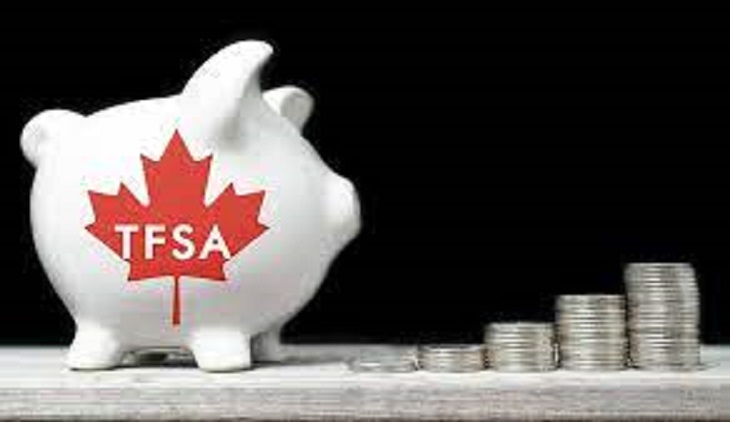A Tax-Free Savings Account (TFSA) is a good opportunity to earn capital gains without paying taxes on the gains. Is. In 2009, the Canada Revenue Agency (CRA) defined the plan as a tax-free investment of up to $5,000 per year. Of course, this ceiling increased to 6 thousand dollars in 2019. This figure was defined as 6 thousand dollars for the years 2020 and 2021.
Note that the principal amount or capital deposited to this account is not tax-exempt. In fact, only the profit earned is exempt from tax.
One of the advantages of a Tax-Free Savings Account (TFSA) is that it is possible to use the unused capacity. For example, if we deposit only $4,000 into this account this year, $2,000 of unused capacity will be transferred to the next year. That is, in the next year, we can enter up to 8 thousand dollars (6 thousand dollars of the next year’s capacity + 2 thousand dollars of unused capacity). In fact, a process similar to that in the Retirement Savings Account (RRSP) is included in the TFSA.
What is a Tax-Free Savings Account (TFSA)?
Anyone can deposit cash or various investments in the form of securities into a Tax-Free Savings Account (TFSA). The account owner can withdraw cash from this account, without having to pay tax on its earnings. All Canadian residents who are at least 18 years old can open a tax-free savings account at a bank, credit union, insurance company, or other financial institution.
In total, there are three types of TFSA, which are «deposit», «annuity contract» and «arrangement in trust». Each financial institution may offer one or more types of these accounts. For more information, you can consult your bank or financial institution.
Benefits of a tax-free savings account in Canada
- Capital increase without paying tax: The main advantage of TFSA is that the capital gain (profit obtained from this account) is exempt from tax.
- Availability for Retirement: Even if you have an Official Retirement Savings Account (RRSP), having a TFSA can help you fund your retirement.
- Can be used at any age: Unlike the Official Retirement Savings Account (RRSP), which is valid until the age of 71, the TFSA account can be used without any age limit.
- Possibility of using the unused capacity: If you cannot use the deposit limit to this account in one year for any reason, this unused capacity will be transferred to the next year. Unused capacity is never wasted.
Disadvantages of a tax-free savings account in Canada
- Limited deposit limit: The low deposit limit to the tax-free savings account can be considered its main disadvantage.
- No Income Tax Reduction: Unlike Official Retirement Savings Account (RRSP), capital gains in TFSA are tax-free.
How to open a tax-free savings account (TFSA)?
Any Canadian resident who is at least 18 years old and has a valid Social Insurance Number (SIN) can open such an account. To open this account, you can go to a reputable financial institution such as a bank, a credit institution, or an insurance company. These financial institutions are tax-exempt savings account issuers.
After providing the date of birth and social insurance number to the account issuer, you can sign the relevant contracts and become the owner of this account.
Types of funds that can be transferred to a tax-free savings account
One of the advantages of TFSA is that, in addition to cash, it is possible to transfer some other funds in the form of securities. A total of 6 types of capital can be entered into a tax-free savings account. These funds include:
- cash
- Types of mutual funds
- Types of exchange-traded funds (ETFs)
- take stock
- Types of Guaranteed Investment Certificates (GIC)
- Types of government or corporate bonds
It is interesting to know that it is also possible to invest in cryptocurrencies such as Bitcoin through a tax-free savings account. Where Is The Serial Number On A Savings Bond?
How to deposit to this account
As soon as you open a Tax Free Savings Account (TFSA), you can start depositing into it. We said that this work can be in the form of cash deposits or transfers of funds in the form of securities. It is also possible to deposit these cash or capital sums at once up to the annual limit or do this at different time intervals.
Total deposit limit and annual deposit limit to this account
You can use the following table to calculate the total deposit ceiling as well as the maximum annual deposit amount:
How to withdraw from T.F.S.A
In general, you can withdraw any amount of money from a tax-free savings account at any time. Of course, if part or all of your capital in this account is in the form of securities, you should also consider their liquidity. For example, if you have stocks, exchange-traded funds (ETFs), or bonds in this account, you must first sell them or wait until the end of their term before you can withdraw from this account.
Withdrawal from TFSA has no tax complications. No fees are charged and no part of this money is considered taxable income.
Of course, if you want to put the shares of foreign companies (such as companies on American stock exchanges) in this account, they will be taxed. We explained more about this in a separate article.
